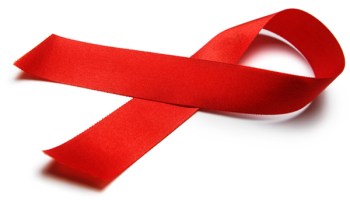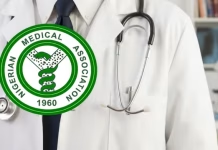As the reporter walks towards the ‘heart to heart’ centre at Wuse District Hospital, she thinks: “if truly a drug to prevent one from getting infected with HIV exists, why then are about 1.9 million Nigerians living with HIV?”
On getting to the centre, the reporter explains to the nurse that she “may have been exposed to HIV following a condom break a night before.”
To the reporter’s delight, the nurse said: “I will give you a drug called Post Exposure Prophylaxis (PEP) for HIV, and you will take it for 30 days straight without interruption,” she said.
Just like the reporter, many Nigerians do not know that these drugs exist.
‘Unaware’
The reporter carried out a series of interviews with some Nigerians to ascertain if they knew about PEP. Unfortunately, out of about 20 people, between the ages 19 and 50 years, none of them had ever heard of PEP. Many of them were only willing to provide their first names.
A lady in her late 20s simply identified as Deborah said she never knew such a drug existed.
“I have had countless razor cuts and needle pricking, so if I knew such drugs exist, I would have attempted to get some (drugs) at a time,” she said.
Wasiu, 35 years old, also said the same.
“It’s only God that keeps protecting one. I don’t have HIV, and I have never taken any drugs to prevent it. I mean, I don’t even know there is a drug to prevent it,” he said.
Also, Abdulrasheed said he is hearing about such drugs for the first time.
“I am hearing about this for the first time. But really? Such drugs exist, and people don’t even know about it. I believe 90 per cent of people you have asked do not know about this drug,” he said.
One would have thought the older people would be aware of the existence of PEP.
Solomon Curtis, a 47-year-old man, said he just heard about PEP from this reporter.
“Tell me more about this PEP and where can I get it,” he said.
Global HIV Prevalence
Human Immunodeficiency Virus (HIV) is one of the world’s most serious public health challenges.
According to UNAIDS, about 36.9 million people worldwide were living with HIV/AIDS in 2017, of which 1.8 million were children.
The Nigerian HIV/AIDs Indicator and Impact Survey (NAIIS) indicates that about 1.9 million Nigerians are currently living with the disease, according to the National Agency for the Control of AIDS (NACA).
Globally, in 2017 about 21.7 million people living with HIV (59 per cent) were accessing antiretroviral therapy, an increase of 2.3 million since 2016 and up from 8 million in 2010.
AIDS-related deaths are also said to have reduced by more than 51 per cent since its peak in 2004.
In 2017, 940 000 people died from AIDS-related illnesses worldwide, compared to 1.4 million in 2010 and 1.9 million in 2004.
Certainly, the rate of HIV transmission globally can further reduce, if more people are aware of PEP.
PEP
PEP for HIV is a short-term treatment with antiretroviral medicine to reduce one’s chance of becoming infected with the Human Immunodeficiency Virus (HIV) after a potentially high-risk situation.
The 30-day medication helps prevent HIV from replicating and spreading in the body as long as it is first taken within 72 hours after exposure.
PEP was initially introduced to health workers who are occasionally exposed to HIV in the line of duty. This is referred to as occupational exposure.
It is now being administered to other non-occupational exposures which include cases of condom break during sex, or in the case of unprotected sex with an anonymous partner or rape cases. It is also used during infections emanating from sharing a syringe for injection of a hard drug.
Before PEP is administered to a person after potential HIV exposure, an HIV test is conducted to determine the status of the person.
PEP can only be started if the rapid diagnostic test reveals no HIV infection present.
Life-saving, Free
Due to the poor health system in the country, one would have thought that such drugs will be unavailable in public hospitals.
But the reverse was the case when PREMIUM TIMES visited the National Hospital, Abuja and Kubwa General Hospital.
The drug can be accessed in any of the government-owned hospitals and for free.
A visit to some private hospitals also shows that the drugs are available at no cost.
A nurse at one of the private hospitals disclosed that Non-Governmental Organisations (NGO) provide PEP drugs and other antiretrovirals yo the hospital.
“All you need to do is get a new folder which costs about N3,000, sees a doctor who will direct you to the laboratory to conduct an HIV test. If the results come out negative, PEP will be administered immediately,” the nurse said.
‘Unavailable’ in pharmacies
The reporter made efforts to access PEP in some pharmacies in Abuja, but only one had PEP drugs which it was ready to sell at N13,110 per pack.
A pharmacy used to illustrate the story
The pharmacies claimed not to have the drugs while others requested a doctor’s or ‘police report’.
Experts Speak
Speaking on the access to PEP, a public health expert, Tolu Fakeye said: “with these Basic Health Care Provision Funds (BHCPF), there must be access to essential medicines in whatever package it will be delivered. So they should be available, accessible and affordable.”
Adediran Abdulhameed, another public health expert, disagrees with the idea of PEP being made available in the pharmacy.
He said: “I don’t agree that the drug should be made available in the pharmacy. The concept of HIV in itself is one that requires trained personnel to manage.
“And whether we like it or not, PEP is also a form of management, in this case, preventing HIV. I wouldn’t encourage someone to go to the shop, get the drugs without understanding it.
“So the fact that I am exposed does not mean I should just go and take the drugs like that. I need to have it on record that this person was negative as at the time of being exposed. Because there could also be some legal issues around it like you hinted that someone asked you to bring police report,” he said.
Drugs administered for PEP
The most commonly recommended drug for PEP is the combination of Tenofovir ( TDF) Lamivudine (3TC) Efavirenz (EFV).
Others are a combination of Tenofovir ( TDF) + Lamivudine (3TC) + Dolutegravir. (DTG).
The combination of Zidovudine ( AZT) + Lamivudine (3TC) + Nevirapine ( NVP) is also administered in some cases.
However, there are some antiretroviral drugs used for the treatment of HIV infection that may be considered for PEP in special circumstances.
One of such drugs is Zalcitabine (2′-3′-dideoxycytidine, ddC), also called dideoxycytidine, a drug sold under the trade name Hivid.
It was the third antiretroviral to be approved by the Food and Drug Administration (FDA) for the treatment of HIV/AIDS.
The combination recommended for children includes Abacavir (ABC) + Lamivudine (3TC)+ ritonavir-boosted Lopinavir (LPV/r).
Side Effects
There are certain side effects associated with PEP. These include but not limited to weakness, headaches, diarrhoea, vomiting, fever, fatigue, excess sweating and dizziness.
These side effects could discourage people from taking the drug.
Mr Abdulhameed said he would encourage people to take PEP irrespective of the side effects.
“For every drug, there are side effects that are noticeable, but then you find out that we can’t do without drugs,” he said.
Mr Fakeye said users should not consider the side effects.
“The most important thing is the efficacy of the drug and why it is needed. One has identified the very high risk of exposure, so it is necessary for PEP to be taken,” he said.
Awareness needed
Mr Abdulhameed calls for more awareness on PEP. He said more awareness would enlighten the people.
He, however, said the job should not be left for the government alone.
“I agree with you that more awareness should be created, but we cannot put the responsibility on government alone.
“I’ll rather say that each one should tell one. I think people should make their health care providers their friend so they can tell them when any incident of exposure occurs.”
NACA’s reaction
In an interview with the Director General of the National Agency for the Control of Aids (NACA), Sani Aliyu, he said the agency would be “investing in pushing messages on PEP out in 2019”.
“I think it is important that our readers know this. If you have sex with somebody who is known to have HIV, or you are using a condom, and it breaks or in the ‘heat of things’, you don’t use a condom, and you start thinking you may have been exposed to the virus, there is something you can do to stop that transmission,” he said.
“If within 72 hours, you are put on HIV drugs (PEP) and you take that for four weeks, you will not get HIV. If you leave it beyond 72 hours, the virus would have established itself in the body,” he explained.
Mr Aliyu said the drug, if taken as appropriate, reduces the chances of transmission “by more than 90 per cent.”












